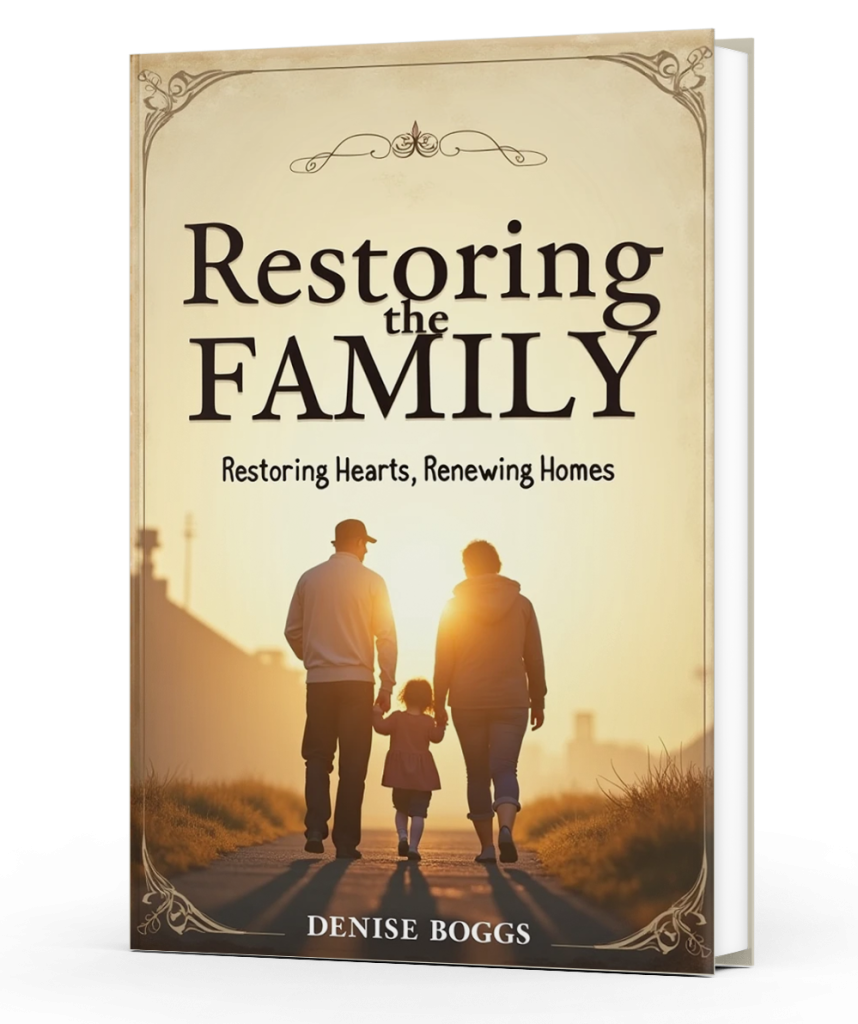by Joseph | Feb 17, 2026 | Preparation, Sharing
Shared By: Jeff Rowland
John’s writing in the book of the Revelation is an amazing look at the revelation of Jesus Christ and gives us a great look at a God encounter. I believe that we desperately need a God encounter each and every day in order to stay focused in our life on the things of the Spirit.
The definition of an encounter is described as; a meeting, particularly a sudden or accidental meeting of two or more persons or bodies. I have watched through the years people who suddenly have a God encounter. I have also seen those who accidentally walked into the presence of the Holy Spirit and were transformed and changed in an amazing way. I believe the church of today needs a fresh encounter with the person of Jesus Christ through the power of the Holy Spirit.
There are four dimensions I want us to consider in this article concerning John’s encounter with Christ recorded in Revelation 1.
1. THE CAUSE OF THE ENCOUNTER. (VS 10)
John says, “I was in the Spirit on the Lords day.” What does it mean to be in the Spirit on the Lords day? I have seen many in the 21 years that I was a pastor come into the church in the spirit. However, some wasn’t in the Holy Spirit, but some other spirit. To be in the Spirit means that you are under the control of the Spirit. This can only happen when you lay down your agenda and perspective of what things are suppose to look like when people are under the control of the Holy Spirit. God does what He does simply because He can and chooses to do so.
(more…)
by Joseph | Feb 17, 2026 | Preparation, Sharing
Many people have asked me where we are getting some of our supply items. I’ll offer links to places we have dealt with in our preparation, and have found them to be very helpful.
For our heirloom seeds, we have found an excellent resource: Landreth Seeds
For Grains and grain milling supplies we, of course, order from our own storehouse: Millers Grain House.
For de-hydrated whole foods, there is no better resource that offers top quality, and organically grown: URI International
by Joseph | Feb 17, 2026 | Preparation, Sharing
Many people have been anticipating a disastrous time that would bring difficulties to our very existence. They believe that their very survival will depend on the ability to overcome and adapt to certain tragic events.
In my own life journey, there have been many people I have encountered who have predicted our “impending doom”. It seems to me that there will always be people out there who spread fear, gloom, and despair about a coming event that will alter the course of our lives. Everyone remembers Y2k and the giant “gotcha” feeling that came when nothing happened. I’ve come to realize, many of the people who were screaming about the coming disaster of Y2K, are now spreading fear about some looming event in the future.
The problem for me is… we are creating some of the disaster with the message of fear and destruction, rather than giving people hope.
On Y2K, my alarm clock went off, my computer turned on, and the power grid did not fail. I was ready (and almost anticipating) a difficult period of time. It was almost a disappointment that I had spent time worrying about what might happen.
You see, the fact that so many people are anticipating some major catastrophe, is what really concerns me. I meet so many people who have given up “hope” because they just don’t see the point anymore. They live their lives wondering – “why hope, when there is a disaster coming?”. That’s a terrible existence, and certainly not the way I want to live my life.
I imagine the early settlers of America really didn’t sit around and worry about a cataclysmic event that would suddenly end their lives. If they did, why would they have ventured from their homeland in the first place? Why not sit at home and wait on destruction from there?
Well, I guess they had hope of a better life and were willing to endure hardships in pursuit of that life. I’m thankful that they did – as it paved the way for where we are today in the US.
The point for me is, there may be difficulties coming. In fact, my belief is there are definitely difficult times ahead. My “call” is NOT to sit around and wait on the collapse of our existence, rather, to prepare so that when that day arrives – I can share hope with those who are in fear and distress.
For a long time, I have felt that the Lord was bringing me to a place of preparation. I was never quite sure what that meant, but certainly did not go around telling everyone that the “sky was falling”. On the contrary, I have tried to raise my children to have HOPE in the things that were ahead – and to live each day with passion and joy. My eternity is secure, and my Joy is in Christ (Yeshua).
So what is all this talk of preparation?
For me, it is getting myself and my family prepared for the great opportunity that awaits us – and especially the joy of a great harvest that will come.
Make no mistake, there are major challenges ahead. Those who have been slumbering, and wasteful, will awaken to find an empty cubbard. They will certainly be afraid when they realize they are hungry, and have foolishly wasted their time acquiring pleasures – rather than preparing.
God is our refuge and strength. He is calling us to prepare – not live in Fear, but walk in Faith. The first step of Faith, is to accept Jesus Christ (Yeshua) as the messiah.
by Joseph | Feb 17, 2026 | Preparation, Sharing
About twenty five years ago, the Lord layed on my heart the need to prepare. At the time, I wasn’t exactly sure what I was preparing for, but I knew something was coming.
This blog will be about the journey, and things that we need to do to prepare.
by Joseph | Feb 17, 2026 | Preparation, Sharing
Unless you have lived on a different planet over the last couple of weeks, you know things seem to be in turmoil. It seems that every person you talk with, are quite concerned with what is going on.
Leaders all over the world are making statements to try to calm their people, as they recognize the panic that threatens to spiral out of control. Leading financial “experts” from leading economies are apparently working behind the scenes to coordinate a global financial rescue effort in an attempt to keep the financial markets from complete meltdown.
This week, the President of Franc – Nicolas Sarkozy – made the statement that he hoped a “New World” would emerge from this chaos.
Scotland’s leading Newspaper published an Article on this “New World Order” citing the new Global co-operation, Nationalization and State intervention – were changing our world.
Even Opec has called an emergency meeting to try to deal with the plunge of oil prices which is putting oil producing economies in turmoil. With the world economy on the brink of a global depression, the need for oil products has diminished significantly.
So what does this all mean? (more…)





